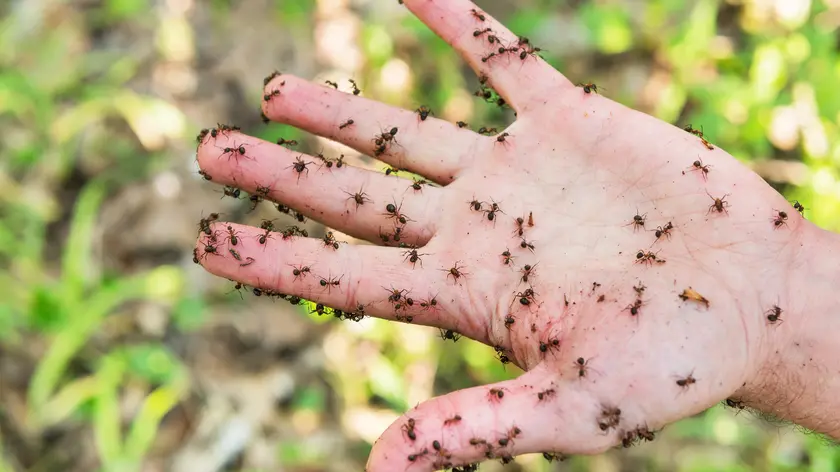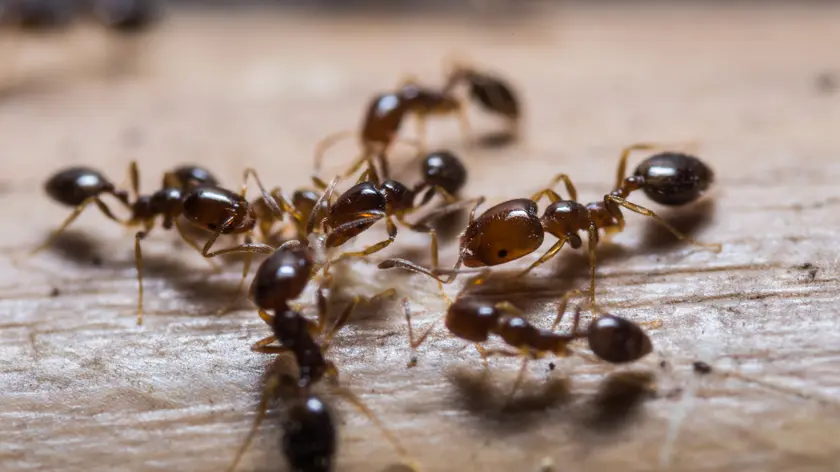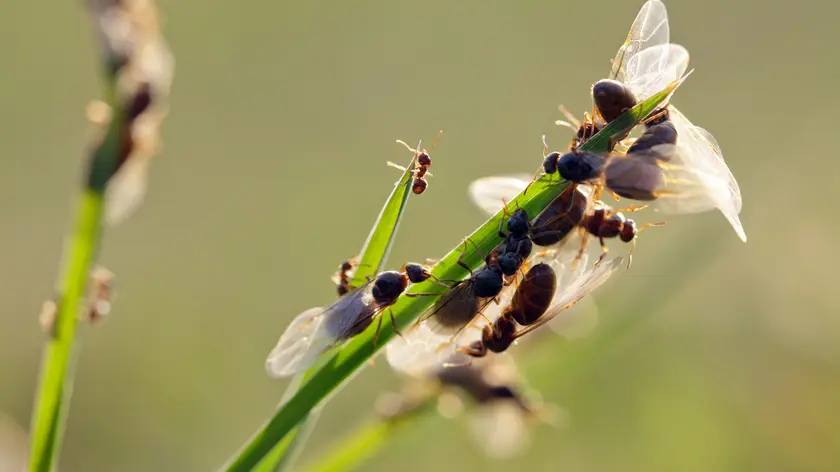How to avoid an ants infestation?
Problems encountered by the presence of ants:
Ants pick up and carry pathogenic or toxigenic bacteria and micro-organisms (yeasts, molds, coliforms, Bacillus subtilis, salmonella and others) when they feed on animals or food. They transfer these bacteria to humans by contaminating the water, food and surfaces they touch. This causes diseases for humans, and damages the cultures (seeds, salads, fruits...).
By digging their nests, they affect farmland, sidewalks, gardens, and structures. If you notice that your wood structures are damaged or damp, this may be a sign of infestation. They dig holes in your wood to build their nests. As a result, the wood becomes weak, and some structures may collapse.
In addition, ants cause the presence of aphids on trees and bushes. They breed them to feed on their excrements, called honeydew, which are very rich in sugar. The appearance of aphids causes the weakening and the propagation of diseases on trees and plants. On their side, aphids make their honeydew available to ants to get their protection against predators, such as ladybugs or larvae.

What to do if you notice an infestation?
The presence of several ants can mean that a nest is near.
To avoid attracting ants to your home:
- Clean up daily (spilled liquids, dishes, open garbage cans...) and store food in closed or airtight jars.
- Get rid of damp, damaged or untreated wood so that ants don't settle near your home or business.
- Close doors and windows, seal small holes and cracks, and install mosquito nets in the warmer seasons to limit their invasion into your premises.
I
f you notice an anthill or a strong presence of ants, call a professional for an adapted and targeted treatment.
For a preventive or curative treatment, our Pest Control technicians are trained in procedures and operating modes for an effective and long-lasting desensitization against ants, all of which respect the regulations and the environment.
Want to know more about ants?
Almost as old as dinosaurs, ants appeared about 120 million years ago. With over 16,000 species, they are now the most present social insect on the planet.
These small insects belong to the Formicidae family and are part of the Hymenoptera order, such as bees and wasps.
Ants live in anthills, which can contain several million individuals. Our planet has several billion of these insects, there is not a square kilometer without them.
Ants do not have ears, but they are not deaf. Indeed, they have amazing ways of communication. For instance, when they are looking for food, they drop pheromones produced by their endocrine glands on the path to send a signal to their congeners.
They can also sense each other with their antennae to recognize each other's role in the anthill. They can signal their hunger by placing their paw on the mouth of another ant, rubbing a part of their body, or even tapping against the ground to create waves and send coded messages.

How is a colony created?
In the summer, your home or company may be infested with flying ants. These winged ants are often queens. They appear during the summer and are on their way to mate with male ants to establish a new colony elsewhere. After mating, the males have no more purpose, and die shortly after. The new queen, however, looks for an ideal place to start her own colony, then loses her wings and begins to lay her eggs.

The organization of an anthill
Anthills are organized into castes, each of which is highly specialized.
- The worker ants (non-fertile) build, supply the nest with food, and protect the colony. They have two stomachs: one for feeding themselves and another, known as the social stomach, which allows them to store food to feed the entire anthill.
- The male ants (fertile) are in charge of the reproduction to ensure the colony's offspring. These ants have a very short life cycle and die soon after mating.
- The queens, who lay an egg every few minutes, are responsible for replacing the 200 million individuals every 2 years. Depending on the species, an ant farm can have several queens, they are called polygynous colonies.
Each caste works exclusively for the colony and not for itself.
What are the characteristics of the ant?
- Measure between 2 and 5 mm.
- Lifespan: from 6 to 18 months (depending on the species) and several years for the queens. Fun fact, some queens can live up to 20 years!
- Are omnivorous but prefer sweet foods.
- Places of contamination: inside and outside buildings.
- They can carry a charge over 60 times their weight.
If you need information or a quote for your project, our teams are here to help. Contact us!
*Required fields
Account details
